- A
- A
- A
- ABC
- ABC
- ABC
- А
- А
- А
- А
- А
International Faculty Members Receive Tenure Positions at HSE University
© HSE University
In September 2020, nine professors in mathematics, linguistics, media, economics, sociology, psychology, and computer sciences received their tenure positions at HSE University. The HSE Look team has talked to them about their previous experience and plans of engaging with the concept of digital university. They also shared with us their views on the challenges HSE University will have to face in its path towards becoming a digital university.
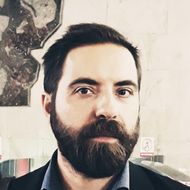
Yiannis Mylonas (Faculty of Communications, Media, and Design)
Dr Mylonas has been employed by HSE University’s School of Media since 2014. He holds a PhD from the University of Copenhagen and has also worked as a postdoctoral researcher and a lecturer at the University of Lund. His fields of specialization are media sociology and cultural studies. His monograph, "The 'Greek crisis' in Europe: race, class and politics" was published in 2019 by Brill (Leiden). His current research interests are concerned with the study of media practices and cultures today, under the lens of the theoretical accounts of the public sphere. This semester he is teaching Critical Text Analysis, and Media, Culture, and Critique.
‘The pandemic and the safety measures may determine the teaching format for this academic year at least, but I believe that face-to-face teaching in the classroom is indispensable for education. As far as my own teaching is concerned, my intention would be (if the HSE rules and the general conditions allow) to have the teaching done offline, in the classroom, and then have the readings and lecture support materials uploaded to the University’s online resources for my course participants. Given the traveling restrictions applied for the containing of the Covid-19, platforms like Zoom and Microsoft Teams enable the relatively easy booking and hosting of foreign lecturers, something that is generally more complicated when the physical presence of the guest lecturer is required.
In my view, coming from a Humanities and Social Sciences background, one of the future challenges would be to maintain a healthy balance between the offline and online education process. The qualities of offline instruction and direct teaching in the classroom cannot be substituted by the digitalisation of education. At the same time, the process of digitalisation offers amazing resource potentials to students and educators alike that need to be utilized at the utmost. The use of digital resources for education may vary on the sphere of knowledge and the subject taught; in that sense, the educators need to judge accordingly.’
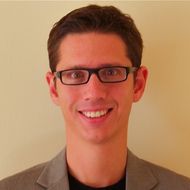
Eren Arbatlı (Faculty of Economic Sciences)
Dr Arbatlı has been a faculty member at HSE University since 2012. He holds a PhD in Economics from Brown University. His research area spans long-run comparative development, political economy of weakly institutionalised regimes and the economic history of the Ottoman Empire. Dr Arbatlı has taught several courses at HSE University, including Advanced Macroeconomics, Political Economy and Long-run Development. He is a co-organizer of the HSE International Seminar Series in Economics and serves in the international hiring committee at the Faculty of Economic Sciences. He is married to Ekim Arbatlı, also a faculty member at HSE.
‘Given the COVID-19 situation, this year, like many of my colleagues, I will be teaching my courses online. While this is far from ideal, looking at it from the bright side, this is an opportunity for all faculty members to acquire the skills and experience that will complement HSE’s other efforts to become a digital university. I am particularly keen on experimenting with those digital teaching tools that not only offer a substitute to face-to-face teaching, but also can help student learning in new ways. For example, I plan to introduce more interactive elements to my online courses. One idea is using mini polls during my lectures to gauge student learning and collect immediate feedback. Another idea is using breakout rooms to split students into smaller groups to facilitate group discussions and collaborative work. For my Advanced Macro course, I'd also like to make use of virtual whiteboard to make real time graphical illustrations of certain economic concepts and mechanisms.’
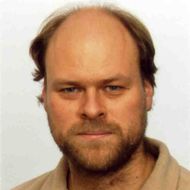
Christian Fröhlich (Faculty of Social Sciences)
Dr Fröhlich has been with HSE University since 2014, first, as Research Associate at the Centre for the Study of Civil Society and the Third Sector, and then, as Assistant Professor in Sociology. Since 2016, he has been lecturing at the School of Sociology, providing instruction in sociology and urban studies. He is also Academic Director of the International Master’s Programme in Comparative Social Research. Dr Fröhlich holds a MA and PhD in Sociology from the University of Leipzig (Germany). He was also Research Associate and Postdoc Researcher at Södertörn University (Sweden), Visiting Fellow at École des hautes études en sciences socials (France) and the Lithuanian Social Research Centre. This semester, he is teaching Civil Society in Contemporary Russia, and Contemporary Sociological Theory.
‘We should not forget about the non-digital space of our institution! With the currently available technologies, it is not a problem to build a digital university as a structure. But it is a problem to actually keep the same high level of quality, social experience and peer-to-peer learning as in offline education. The challenge will be to combine the structure of a digital university with real life, so that it convinces students and lecturers that they have an investment in it. Lecturers have to ‘go to school’ again. We need education and training in using these new technical instruments and in building meaningful digital curricula.’
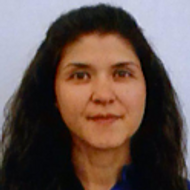
Marie Arsalidou (Faculty of Social Sciences)
Dr Arsalidou received her MA and PhD in Psychology (developmental and cognitive processes) from York University (Toronto, Canada). Her research interests comprise cognitive development and neuroimaging. She joined HSE in 2014 and is currently the head of the Laboratory for the Neurobiological Foundation of Cognitive Development (Neuropsy Lab). She is teaching Cognitive Developmental Assessment for undergraduate students and a Research Seminar in Cognitive Science for Master’s students.
‘I think it is wonderful for students to have options to participate in classes remotely, in-person, or a combination of the two. However, we need to learn to evaluate student performance and course outcomes so that we can say conclusively what the best learning venues are. It would be good to see a user-friendly platform for creating exams for students that they could complete at home.
Our lab has several ongoing investigations to better understand neurocognitive abilities in children. We use methods such as eye-tracking, ultrasound and magnetic resonance imaging. Because of the pandemic we have transferred our cognitive games to an online format so that children can participate in our studies and play these cognitive games from home. Parents can register at the Neuropsy Lab website. We truly appreciate the time children contribute to help us with our science and we actively discuss our findings with interested educators, parents and children.’
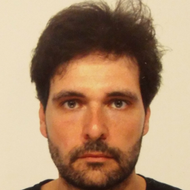
Mauro Mariani (Faculty of Mathematics)
Dr Mariani is a Physics graduate and received a PhD in Mathematics at La Sapienza (Rome). One year of his PhD was spent at New York University. He then pursued his postdoc in Paris and secured his first tenure in 2009 in Aix-Marseille. After spending a few years back in Italy, he arrived at HSE University in 2017. His main interests are calculus of variations and random dynamics, both from a purely mathematical and applied points perspectives. This semester he is teaching Probability Theory.
‘There is a lot of excellent material online, produced by universities around the world. So, it is pointless to include low quality material on a given subject. To stay relevant, we must provide students with the opportunities and support that they cannot find online. This means interaction not just with teachers and professionals of a given subject, but also with other students. We must give them a taste of the academic atmosphere and instill enthusiasm.’
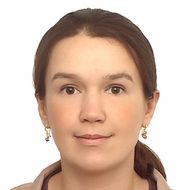
Natalia Slioussar (Faculty of Humanities)
Dr Slioussar started her academic path at the Department of General Linguistics at Saint-Petersburg State University. Then, a year at the University of Maryland as a visiting student helped her refine her choice - formal and experimental linguistics. As a participant in the Utrecht–Saint-Petersburg joint PhD programme, she was able to benefit from working both in the Netherlands and Russia. After two postdoc projects at University College London and Utrecht University, she started working at HSE University’s School of Linguistics (2014). She is a winner of the Golden HSE award for research. This semester she is teaching Experimental Studies of the Grammar.
‘I took part in creating two Coursera courses on psycholinguistics and neurolinguistics with my colleagues from Saint-Petersburg State University, but I always saw this as a separate genre. Needless to say, such courses significantly widen your options, but nothing can be compared to having live discussions in class. Being a researcher is about considering different viewpoints, evaluating information critically and trying to ask new questions – these things are difficult to teach if the whole course consists of prerecorded lectures and mechanistic tests.
This year, I will need to introduce some blended learning techniques, but I would also like to go back to the good old days once the pandemic is over. This does not mean that I do not appreciate MOOCs. I see them and regular courses as two complementary things, which should be shaken, not stirred. MOOCs may be great for getting acquainted with different subject fields and mastering specific skills. Moreover, students entering postgraduate programmes come from different backgrounds, and very often, MOOCs can be instrumental in bridging such gaps.’
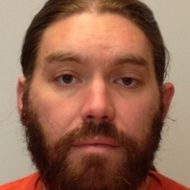
Christopher Brav (Faculty of Mathematics)
Dr Brav received his Master’s and PhD in Mathematics at Queen's University (Canada). He then did postdoctoral research at University of Toronto, Leibniz Universität Hannover, and the University of Oxford. At HSE University since September 2014, he has taught Introduction to Galois Theory, and Introduction to the Theory of Categories and Homological Algebra.
‘I helped one colleague to prepare materials for a course on Coursera last year, and this year I would consider setting up my own course on this platform. As for the response to challenges we will face, some economists argue that higher education is, for most people, largely about signaling intelligence and conscientiousness to future employers. It's unclear whether a digitised university education can have the same value as a signal, thus making this type of education less desirable to students.’
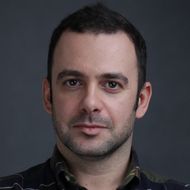
Matteo Feurra (Faculty of Social Sciences)
Dr Feurra received his PhD in Psychology and Cognitive Sciences at the University of Florence. He was visiting PhD student at the Institute of Cognitive Neuroscience of University College of London and a postdoctoral fellowship at the University of Siena. His research interests span various areas of cognitive neuroscience, with a special focus on the sensorimotor system, memory processes, and non-invasive brain stimulation techniques. He joined HSE University in 2014 and currently leads the Memory and Motor Control group at HSE University’s Centre for Cognition & Decision Making. He teaches Cognitive Neuroscience, and Advanced Neuroimaging Techniques.
‘This upcoming year, I would like to transform my Cognitive Neuroscience course into full digital format. So far, students have had access to video, lectures and online materials, which are all shared using a G-drive. However, my plan is to have the course entirely digitalised. I am also teaching Advanced Neuroimaging Techniques, which is a course that is based on hands-on sessions with real lab equipment. That would be more difficult to digitalise. However, I am looking at several solutions.’
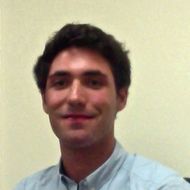
Quentin Paris (Faculty of Computer Science)
Dr Paris has been at HSE University since September 2014. He obtained a PhD in Statistics in 2013 from the Ecole Normale Superieure de Cachan, Antenne de Bretagne (now called Ecole Normale Superieure de Rennes) in France. From 2013 to 2014, he was a postdoctoral fellow at the CREST (Center for Research in Economics and Statistics) Laboratory in Paris. He is teaching High-dimensional Statistical Methods, Modern Methods of Data Analysis, and Modern Methods of Decision Making.
‘I guess there are several challenges when building a digital university. For instance, I think that it is difficult for students to follow online classes without real interactions with other students or teachers. We definitely need to be creative when it comes to developing online materials to make sure that learning processes remain enjoyable for everyone and compensate for live class experience. On the other hand, the online mode has some very positive sides. For instance, recorded lectures (that can be paused, replayed, or viewed when convenient) can be a real game changer for students.’

